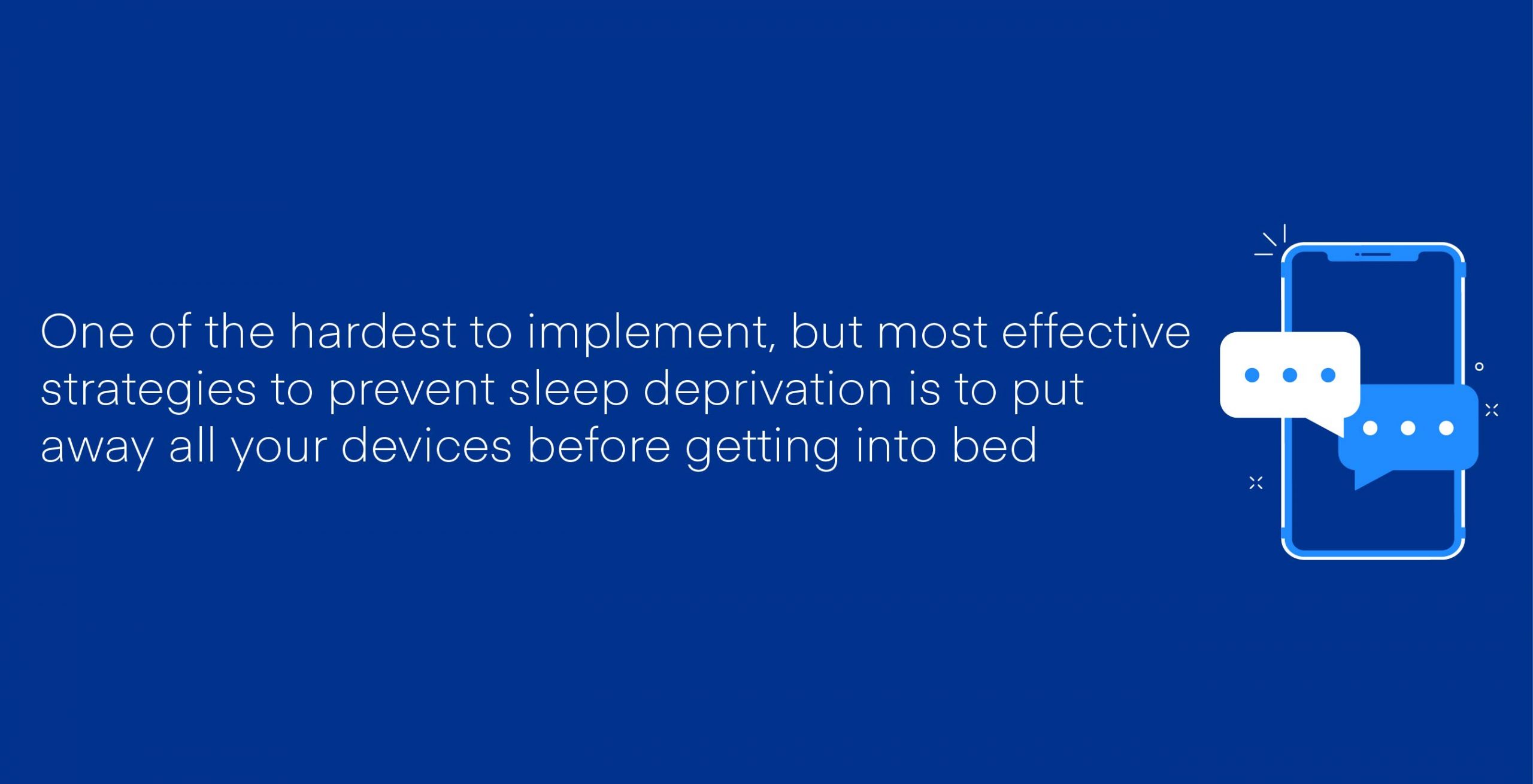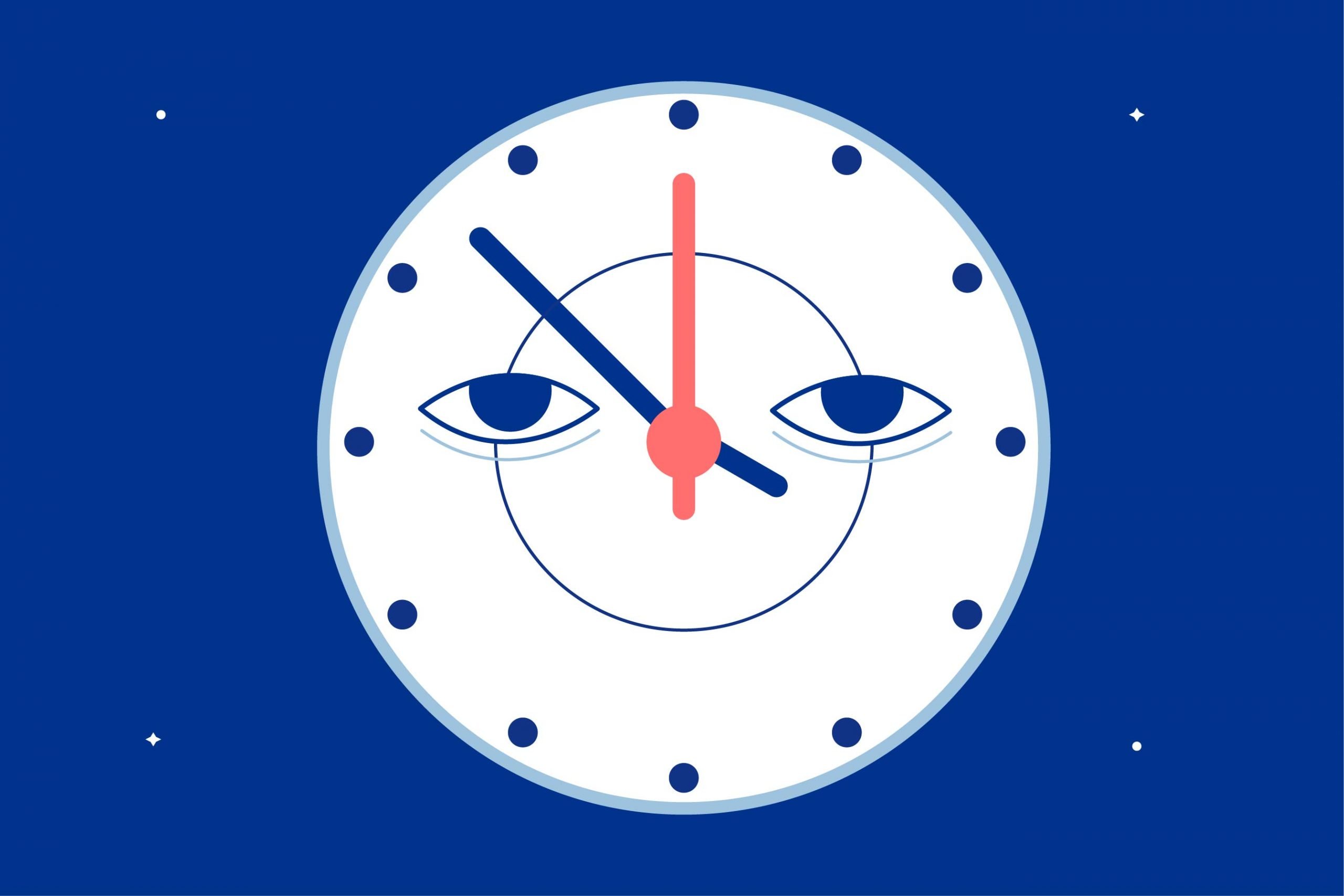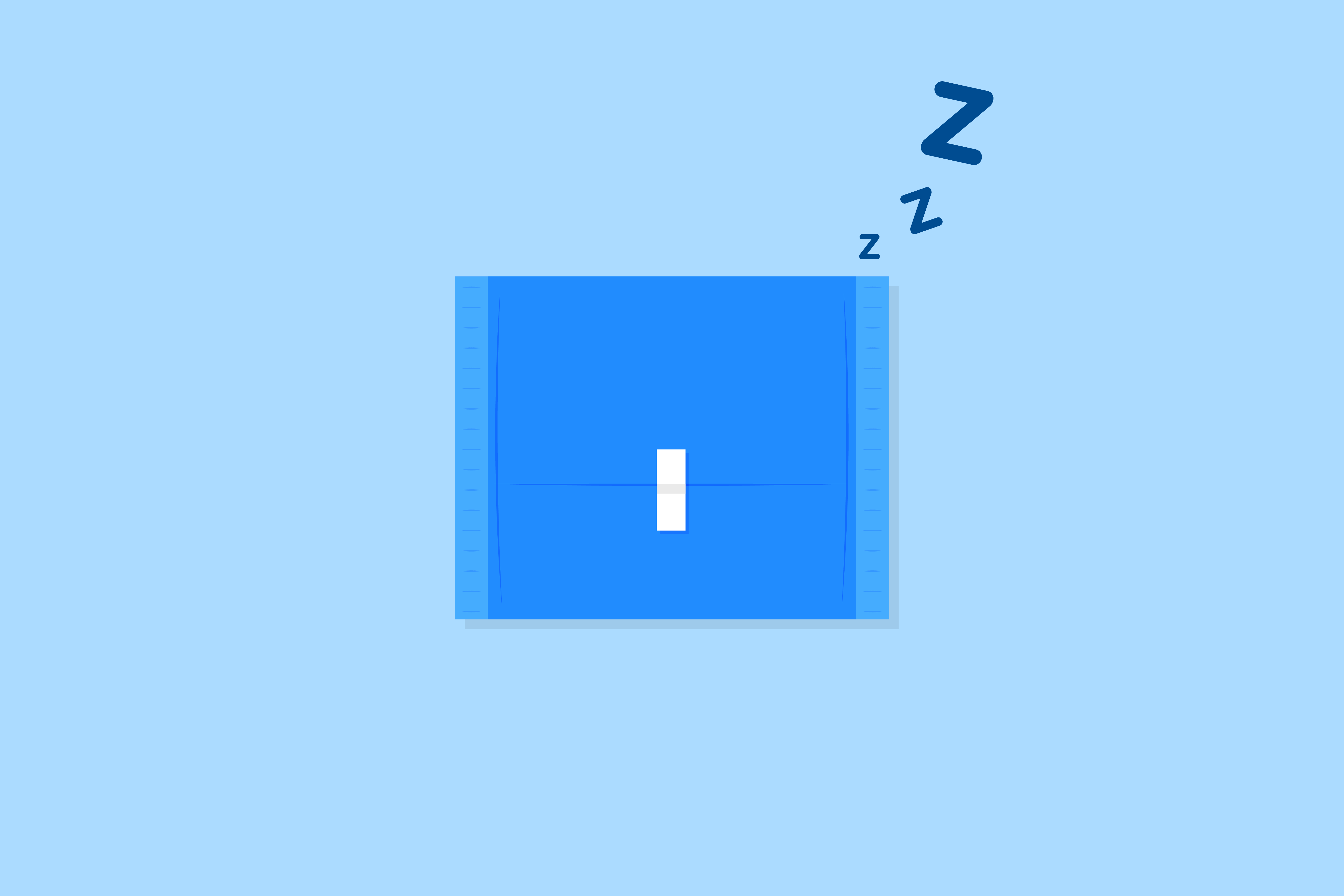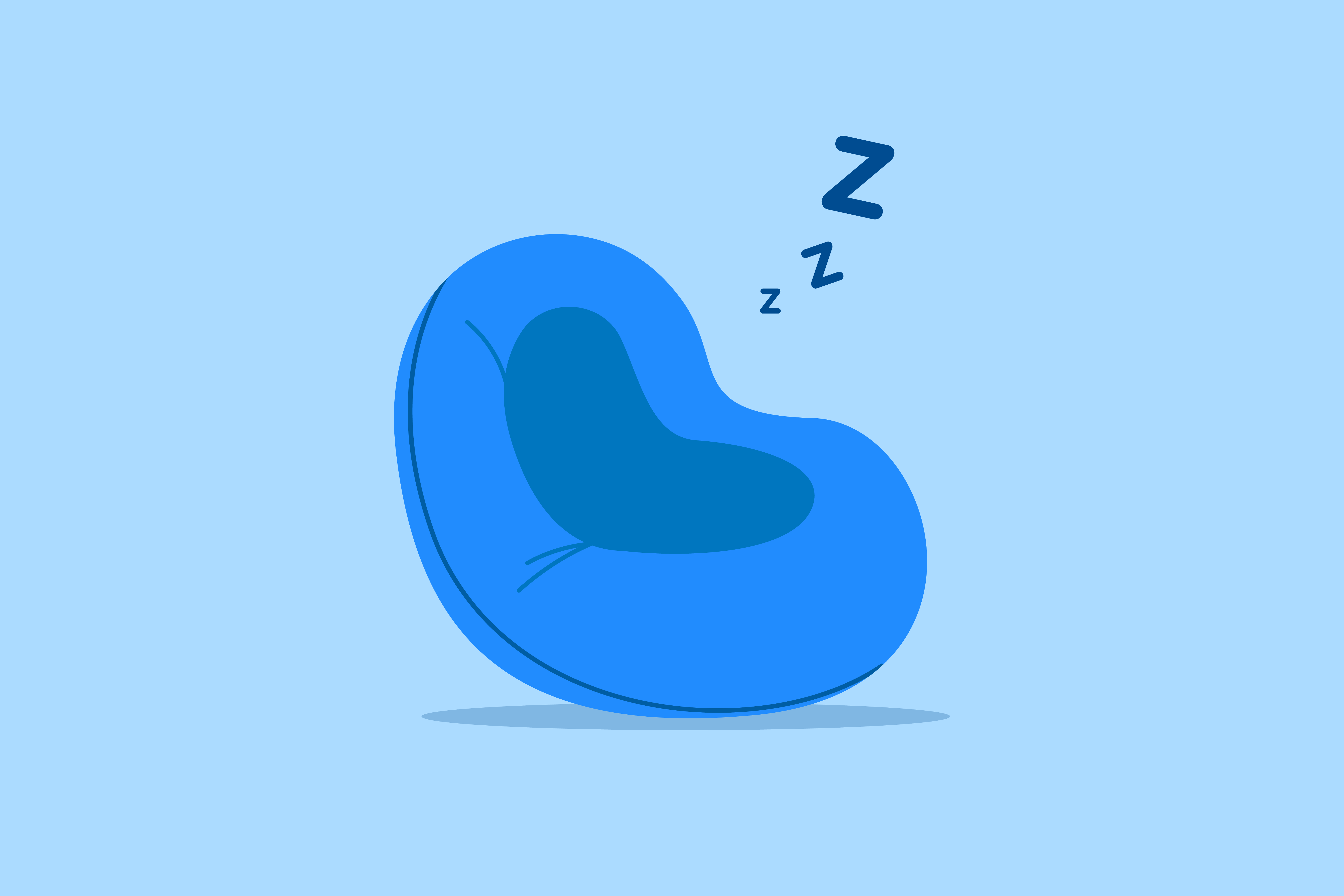Sleep deprivation is a condition where a person does not get enough sleep. Below we discuss the symptoms, causes, and treatments to consider.
Have you ever stayed up late, only to wake up feeling exhausted and unfocused? You may be experiencing sleep deprivation and you are not alone. Today, more than 1 in 3 American adults Verified Source Centers for Disease Control and Prevention (CDC) World’s largest medical library, making biomedical data and information more accessible. View source don’t sleep enough.
Why does it matter? Can sleeping too little actually cause problems? If so, how can you start sleeping better? Let’s break it all down.
What Is Sleep Deprivation?
Sleep deprivation is a condition where a person does not get sufficient sleep. Most adults need seven to eight hours of sleep Verified Source National Library of Medicine (NIH) World’s largest medical library, making biomedical data and information more accessible. View source every night.
Meanwhile, children and teenagers may need even more sleep. See our guide on how much sleep children need for more information.
Occasionally, losing a few hours of sleep is okay, but if you sleep for fewer than the recommended number of hours each night, your mind and body may start experiencing adverse effects.
For instance, data from the Centers for Disease Control and Prevention (CDC) shows “short sleepers,” people who sleep for fewer than 7 hours each night, may be more likely to report Verified Source Centers for Disease Control and Prevention (CDC) World’s largest medical library, making biomedical data and information more accessible. View source 10 chronic health conditions compared to adults who get sufficient sleep.
What Causes Sleep Deprivation?
Sleep deprivation may be caused by medical conditions like insomnia (when a person is unable to fall asleep), wake up at night for a prolonged period of time, or by choice (when someone chooses to stay up on purpose).
Conditions like insomnia and obstructive sleep apnea are involuntary and make it difficult to get sufficient sleep. These can be treated or at least managed with the help of a medical professional.
Sometimes, sleep deprivation happens by choice. For instance, students, employees, Verified Source National Library of Medicine (NIH) World’s largest medical library, making biomedical data and information more accessible. View source parents of children with special needs, and first-time parents Verified Source Oxford Academic Research journal published by Oxford University. View source often stay up late to catch up with the day’s work as they don’t find enough time during the day.
These are considered voluntary causes of sleep deprivation as the individual chooses to sacrifice sleep to finish a particular task. These tasks often include studying, working, admin tasks, cleaning, meal prepping, and other activities that people feel the need to prioritize at the cost of losing sleep.
Nowadays, many people choose to forgo sleep for entertainment and getting some me-time in a phenomenon called “ revenge bedtime procrastination. Verified Source National Library of Medicine (NIH) World’s largest medical library, making biomedical data and information more accessible. View source ”
Here, individuals stay up late at night scrolling through social media, watching TV, chatting with their friends, shopping online, or just switching between different apps on their phones. Experts say this may be an attempt to reclaim the time lost during the day by trying to extend the bedtime as much as possible. While some states have worse sleep deprivation than others, it’s a nationwide issue that too many people aren’t getting enough sleep.
What Are The Symptoms Of Sleep Deprivation
Here are some common symptoms of sleep deprivation Verified Source National Library of Medicine (NIH) World’s largest medical library, making biomedical data and information more accessible. View source recognized by doctors and other medical professionals.
Fatigue
- Feeling exhausted after waking up in the morning.
- Having low energy throughout the day.
- Experiencing difficulty performing everyday tasks.
- Reduced vision from lack of sleep or tired eyes
Lack of Concentration
- Struggling to pay attention.
- Losing track of things.
- Being unable to concentrate for long periods of time.
Irritability
- Feeling upset over trivial things.
- Getting irritated by things that don’t usually bother you.
- Experiencing bouts of anger and annoyance.
Worsened Memory
- Struggling to remember where you put things.
- Being unable to learn and remember what you study.
- Forgetting important tasks.
Poor Decision Making
- Making impulsive decisions.
- Struggling to make fair judgments.
- Experiencing analysis paralysis by overthinking small decisions.
Changes in Mood
- Switching from one mood to another in a few minutes or hours.
- Feeling strong but fleeting emotions for no apparent reason.
- Experiencing rapid mood “swings.”
- Glassophobia.
While these are the common symptoms of sleep deprivation, keep in mind that everyone’s body responds differently to sleep deprivation.
How Does Sleep Deprivation Affect Your Mind And Body?
In addition to making you feel unpleasant today, sleep deprivation also has adverse effects in the long run. Here are some ways constant sleep deprivation affects your mind and body.
Lowers Your Immune Response
Sleep deprivation is said to lower your body’s immune response over time, making you vulnerable to infections. Several studies have shown that people who frequently get insufficient sleep become more prone to infections Verified Source National Library of Medicine (NIH) World’s largest medical library, making biomedical data and information more accessible. View source than people who sleep well.
Worsens Cardiovascular Health
Our bodies heal when we sleep, Verified Source Johns Hopkins Medicine University focused on medical research that produces thoroughly reviewed health articles. View source so sleep deprivation robs our body of the time and resources to remain healthy. This particularly affects the essential organs and systems (like the cardiovascular system) required for healthy functioning. For instance, a 2017 study showed that getting insufficient sleep may increase the risk of cardiovascular disease.
Diabetes
Not getting enough sleep can disturb the body’s ability to regulate blood sugar Verified Source National Library of Medicine (NIH) World’s largest medical library, making biomedical data and information more accessible. View source which can increase the risk of metabolic conditions like diabetes.
Obesity
When individuals don’t get enough sleep, they feel fatigued and crave more calories and carbohydrates Verified Source National Library of Medicine (NIH) World’s largest medical library, making biomedical data and information more accessible. View source than typically required. This can upset one’s diet, lead to an imbalance of nutrients, and make it difficult to maintain a healthy weight.
Hormonal Imbalances
Getting good, quality rest every day can help the body regulate its hormonal production; however, when you don’t get enough sleep, this process is disturbed. This increases the risk of hormonal imbalances. According to a 2015 study, Verified Source National Library of Medicine (NIH) World’s largest medical library, making biomedical data and information more accessible. View source this “negatively impacts hormonal rhythms and metabolism, and is associated with obesity, insulin insensitivity, diabetes, hormonal imbalance, and appetite dysregulation.”
Worsens Symptoms of Depression
Sleep deprivation and depression are deeply linked. Not getting enough sleep can significantly affect your mood, which may lead to worsening the symptoms of depression. On the other hand, depression, by itself, can make it hard to sleep. Verified Source National Library of Medicine (NIH) World’s largest medical library, making biomedical data and information more accessible. View source
Increases Anxiety and Irritability
Like in the case of depression, sleep deprivation and anxiety have a bidirectional relationship. This means both can affect each other. For instance, lack of sleep can make you feel agitated and increase symptoms of anxiety and irritability. On the other hand, feeling anxious or irritable may also make it difficult to fall and stay asleep. Verified Source National Library of Medicine (NIH) World’s largest medical library, making biomedical data and information more accessible. View source
People frequently get trapped in these negative cycles where they can’t sleep because they are anxious and become even more agitated because they are not getting enough sleep.
How To Prevent Sleep Deprivation?
Sleep Lab Director and Professor Dagmara Dimitriou states, “Although sleep is firmly embedded in our culture and affected by societal pressures, we ought to make individual efforts to optimize sleep to improve our wellbeing”. Preventing sleep deprivation is possible with a combination of medical, self-care, and therapy-based treatment options. Here are some of the most common ways doctors and sleep specialists suggest preventing sleep deprivation.
Have a Routine
Having a fixed routine is key Verified Source National Library of Medicine (NIH) World’s largest medical library, making biomedical data and information more accessible. View source to preventing sleep deprivation.
Going to bed and waking up at the same time daily can help you build a healthy sleeping habit, which will improve your circadian rhythm and prevent sleep deprivation. All of this helps you to maintain and fix your sleep schedule.
You can do this by calculating when you need to go to bed by determining when you need to be up. For example, if you have to get up at 7 am for work, aim to sleep around 11 pm so you get 8 hours of sleep. If you are the kind of person who lies in bed for an hour before falling asleep, increase the time accordingly, and get in bed by 10 pm. Also, CBTI treatment suggests reducing your time spent in bed so that you experience less sleep onset delay.
Our sleep calculator is a free online resource that can help you determine when to go to bed.
No Devices in Bed
One of the hardest to implement, but most effective strategies to prevent sleep deprivation is to put away all your devices before getting into bed. It is too tempting to scroll through social media, watch videos, or chat with your friends while laying on your bed.
This habit can worsen the quality of sleep you get. The blue light from your electronic devices disrupts circadian rhythms, Verified Source Harvard Health Blog run by Harvard Medical School offering in-depth guides to better health and articles on medical breakthroughs. View source further disturbing your sleep patterns.
Start small by putting your devices away earlier and earlier before bed because it may be difficult to suddenly leave your smartphone after years of using it before falling asleep. Try putting it away for 10 minutes before sleeping, then 20 minutes, then 45 minutes, and so on, until your sleep habits are back on track.
Pay Attention to Your Diet
Sometimes external tips like putting your devices away may not work if your diet is interfering with your sleep patterns. For instance, studies show that drinking coffee before bed may make it difficult to fall asleep. This sounds obvious, but even caffeinated items like chocolates, sweets, and drinks can disturb your circadian rhythm.
Another category of foods to avoid before bed are spicy foods. Verified Source National Library of Medicine (NIH) World’s largest medical library, making biomedical data and information more accessible. View source These can make it difficult to fall asleep, and tend to reduce the quality of rest you get when you do fall asleep.
Takeaways
- Common signs of sleep deprivation include fatigue, irritability, lack of concentration, poor decision-making, and other cognitive problems like worsened memory.
- Causes of sleep deprivation include medical conditions like insomnia and voluntary deprivation like in the case of revenge bedtime procrastination.
- Sleep deprivation can be prevented by setting an effective bedtime routine, putting the devices away before bed to eliminate blue light exposure, improving your pre-bedtime diet, and seeking professional help if required.

FAQs
How much sleep do I need?
Our sleep needs change as we age, more or less plateauing once we reach adulthood. According to the American Academy of Sleep Medicine, the average adult between 18 and 65 needs about 7 to 9 hours of sleep. Seniors need less sleep than younger adults, around 7 to 8 hours.
How many hours of sleep causes sleep deprivation?
For most adults, getting less than 6 or 7 hours of rest leaves them suffering the effects of sleep deprivation. However the amount of sleep each person needs varies. Some adults may not feel well-rested if they receive less than 8 or 9 hours of sleep.
Should I sleep for 2 hours or stay awake?
When the choice is between getting too little sleep or no sleep at all, it’s usually best to opt for the former. Even insufficient sleep can relieve symptoms of sleep deprivation, while not sleeping at all will only allow the effects to grow worse.
In this example, sleeping for about 2 hours should allow you to cycle once through all the stages of sleep. While you may feel groggy when you wake up, even a couple of hours rest can make your day more bearable.
What is poor sleep hygiene?
Sleep hygiene is a term used to describe how your daily routine and environment impact your sleep schedule. So poor sleep hygiene describes a schedule and environment that’s not conducive to a full night’s sleep.
For example, if your bedroom is sweltering and brightly lit at all hours of the day, you’ll probably find it difficult to sleep at night. Coolness and darkness are essential for a good night’s rest. Similarly, staying active late into the evening with electronics can also make it challenging to fall asleep. We recommend turning off your electronics at least an hour before bed.
What are the effects of sleep deprivation?
Immediate effects of sleep deprivation include exhaustion and reduced cognitive performance. You may find it difficult to complete tasks that you breeze through when you’re fully rested. The long-term effects of sleep deprivation can be more insidious, as it’s linked to high blood pressure, diabetes, obesity, and depression.
Conclusion
A growing number of people are experiencing sleep deprivation. If you consistently feel fatigued or irritable, you may be experiencing its effects. However, the good news is that sleep deprivation is preventable and curable.
With some lifestyle (and therapeutic) changes, one can improve their sleep habits, reduce the severity of sleep deprivation symptoms, prevent the causes, and make the most out of their treatment.
About the author
Geoff McKinnen is a writer focusing mainly on the healthcare industry and has written articles on everything from foods to help you lose weight to the connection between Alzheimer’s and sleep. Geoff’s passionate about helping readers improve their well-being to lead happier lives. Outside of work, Geoff enjoys cycling and hiking and believes that by leading a healthy lifestyle, he can help others do the same.
View all posts



